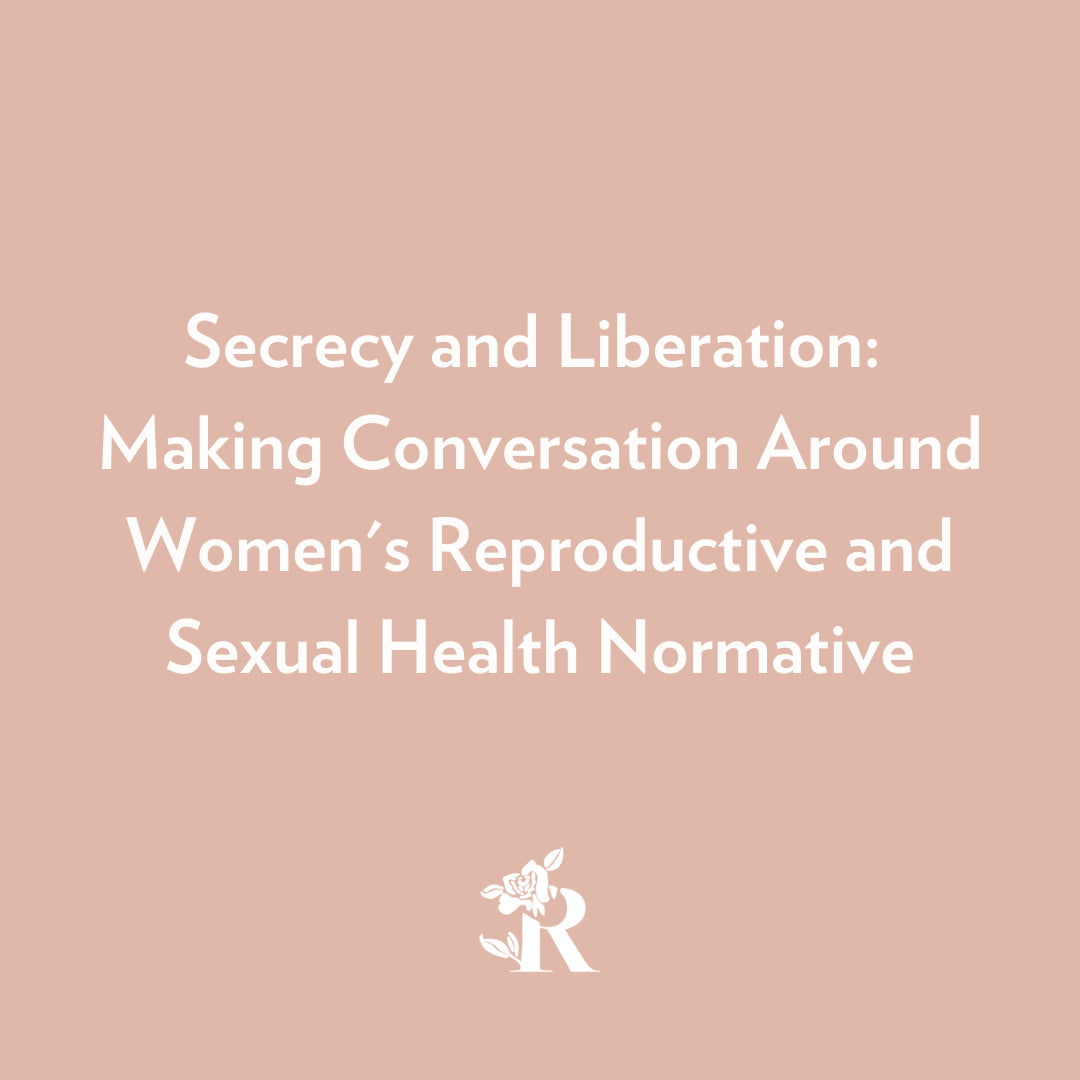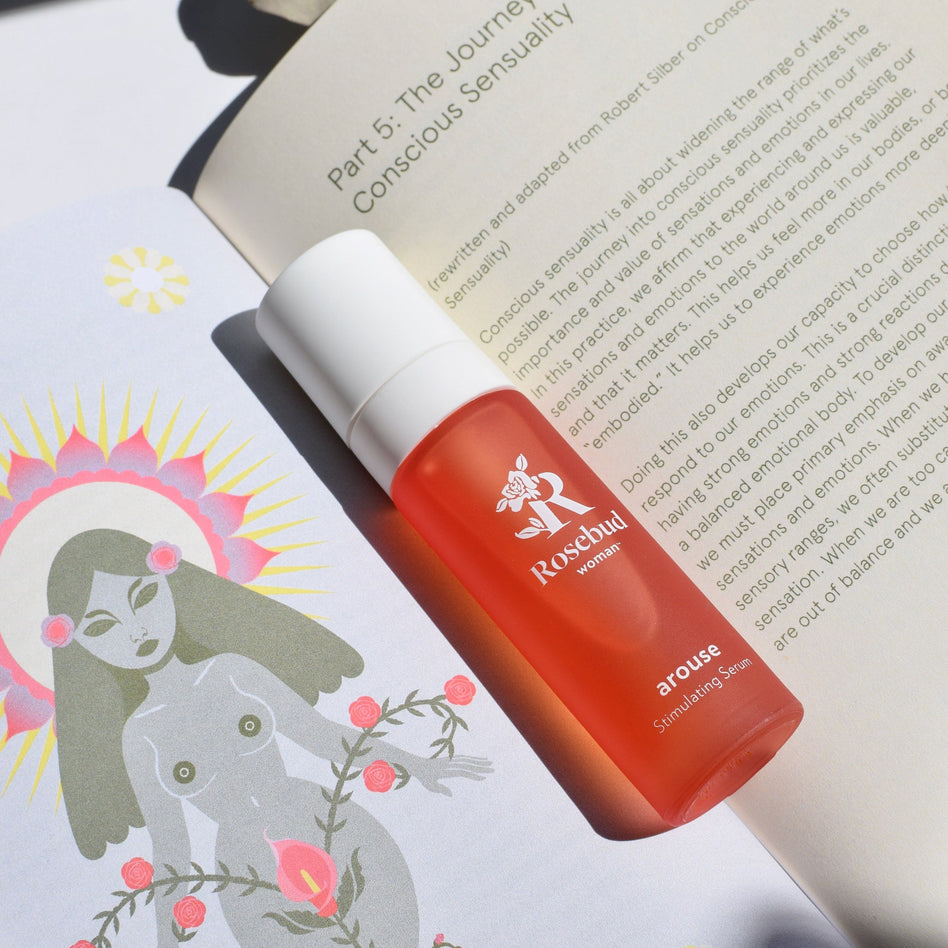Secrecy and Liberation: Making Conversation Around Women's Reproductive and Sexual Health Normative

Dear Friends,
One of the perks of traveling for Rosebud Woman is meeting women across the country. We know that the challenges women face around health and intimacy don’t differ significantly by region—but the ability to discuss them openly absolutely does. No matter where we go, there are always a handful of sex-positive therapists and skincare providers, doulas, midwives, and influencers. But cultural differences in various regions make it a little harder to talk intimate care in the blueblood corridors of coastal Maine than in the haute hippie kingdoms of Northern California. I’d like to talk about what we exclude, and how those choices impact our lives.
Have you heard the idea that our shadows—what we refuse to look at—govern us?
Health and intimacy are perfect examples. If we can’t talk about our sexual and reproductive parts, we might not know that we face the very same concerns as many other women. Sharing our experience with others, in fact, might lead us to uncover new patterns and understandings that can help us all heal. You might even learn that there are already solutions out there for your own concerns, and that you don’t have to suffer.
As individuals, we can hardly be blamed for not talking openly about our vulva, labia, glands, clitoris, vagina, cervix or uterus. For many of us, talking about sex was traditionally limited by a lack of information, and nervous tittering. Experimenting with sex was often a recipe for slut shaming. And women’s health? I know women who have had multiple children and still don’t know the names of their own body parts.
empower yourself
In daily communication, people will readily tell others about a “bad sinus infection”—but they rarely say “I have a brutal yeast infection.” I dream of a day when women everywhere can speak honestly about her health, and people will get it instantly, and know what it means. Take miscarriage, for example. Today, if someone miscarries, they usually keep it quiet. But what if a woman could say instead, “I just had a ninth week miscarriage,” and the person receiving this information would understand all the subtleties of that statement: That such a miscarriage involves cramping, pain, cervical dilation, and bleeding. That the hormones of pregnancy will remain in the bloodstream for 4 to 6 more weeks- most likely accompanied by grief and other post-partum-like feelings. Women wouldn’t feel so alone during this time, or feel compelled to put on an “it’s fine” mask.
People learn over a lifetime to hide their truths. Whether as a young child or in a formative relationship, voicing our doubts, shadows, and complexities may be met with anger, scorn, withdrawal, or other forms of punishment. So we learn to hold back on discussing those aspects of ourselves, even with our most intimate partners. We reinforce shame, and we reinforce the hiding habit.
Here are two things to try. First, say what is actually true for you. Next, when our friends share themselves with us, accept their truth. Do not argue, bargain, wheedle, cajole, shame, or punish them for what they say it true for them. When a friend reveals a tiny slice of his or her reality—even if it is not very appealing—respond respectfully, and nurture their tender shoot of truth-telling.
We have to believe, and I mean truly believe, that everybody is doing the best that they can at any given moment. Given our unique set of experiences, skills, and awareness of our own choices and impact, we are always making the best choice in the moment— by virtue of the fact that that is the choice we are making. Even if the choices made by others don’t seem to be “good” ones, we can have compassion and understanding; because when someone makes a destructive choice, it shows that he or she is still informed by old pain. One day, hopefully, when that person has done their inner work, she’ll be able to make a different choice. When we stop faulting people for the things they cannot do, spaciousness opens up in us, and in the relationship.
This works in larger systems, too. In this country, for example, we push away the sick, the poor, the criminal, and the elderly; we exclude anyone who doesn't enhance our rosy image of a healthy, productive, affluent society. We refuse to look at our own shadows, even while they separate, wound, and kill us in countless ways.
I think this is where our biggest potential as a society lies: to love all of ourselves—including our own dark sides, shadows, or broken places—and cultivate the ability to love others in theirs, as well.


























